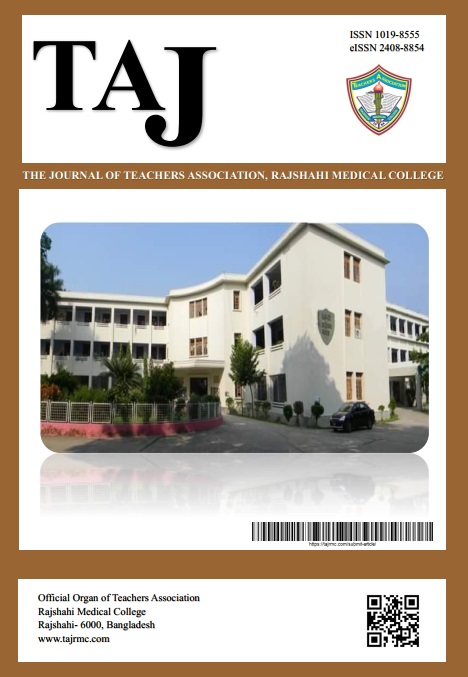| PCR Test for SARS-CoV-2, Rajshahi Medical College Perspective |
| Dr. Kh. Md. Faisal Alam, Shah Md. Ahsan Shahid |
| https://doi.org/10.62469/taj.v037i02.01 |
| Pdf Download |
The global COVID-19 pandemic has drastically altered the landscape of healthcare, presenting unparalleled challenges to medical professionals and systems.1 At the heart of the effort to manage the crisis is the polymerase chain reaction (PCR) test, which has emerged as the gold standard for diagnosing COVID-19. PCR testing has been pivotal in identifying SARS-CoV-2, the virus responsible for the disease, owing to its high sensitivity and specificity. In Bangladesh, particularly in institutions like Rajshahi Medical College (RMC), PCR testing has been crucial in shaping the country's response to the pandemic. This editorial provides a critical analysis of PCR testing at RMC, considering its implementation, impact, challenges, and lessons learned. The PCR test operates on a principle of amplifying viral genetic material to detectable levels, even in individuals with low viral loads. This attribute made it the preferred diagnostic tool early in the pandemic. The global health community rapidly adopted PCR testing due to its ability to detect infections with high accuracy, thus enabling early isolation, contact tracing, and treatment decisions.
